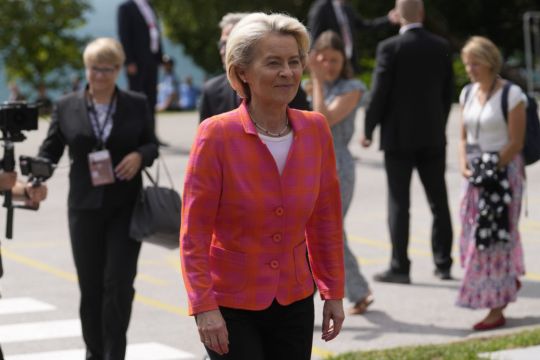The head of the European Union’s executive branch and Germany’s chancellor have pledged a reform of the continent’s electricity market to help bring down power prices that have been pushed higher by skyrocketing gas prices.
European Commission president Ursula von der Leyen said in a speech in Bled, Slovenia, that soaring electricity prices “are now exposing the limitations of our current electricity market design”.
“It was developed for different circumstances,” Ms von der Leyen said.
“That is why we are now working on an emergency intervention and a structural reform of the electricity market.”

The continent’s electricity market is underpinned by a “merit order” system in which the power stations offering the cheapest electricity are tapped first, but prices are determined by the last and most expensive power stations to be tapped – at present, those using gas, whose price has risen sharply following cuts in supplies by Russia to several European countries amid the war in Ukraine.
German Chancellor Olaf Scholz, visiting Prague on Monday, said that the question of how the European electricity market can be redesigned “so that we no longer have to bear these high prices we are currently seeing” took up much of his meeting with Czech Prime Minister Petr Fiala, whose country currently holds the EU’s rotating presidency.
He said that “we will act together quickly”.
“It is necessary for us to make structural changes that contribute to prices sinking again quickly and there being a sufficient offer” of electricity, Mr Scholz said at a news conference.
He added that “there is great readiness to change something, and that seems to me to be very much mutual among the heads of state and government in Europe”.
“Clearly what is currently being asked as a market price does not reflect supply and demand in the proper sense,” he said.
Speaking earlier in Berlin, a German Economy Ministry spokeswoman said that the idea is to keep the principle of the “merit order” system, “but do away with the negative effects the merit order has, so that the high gas prices can no longer impact immediately and automatically on electricity prices”.
The aim is for customers to benefit from cheaper production prices for renewable energy, for example, spokeswoman Beate Baron said.







